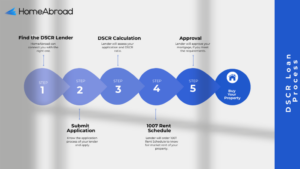dscr loan michigan – Are you a business owner in Michigan looking for financing options? If so, you may have come across the term DSCR loan. In this comprehensive blog article, we will dive deep into what a DSCR loan is, how it works, and how it can benefit businesses in Michigan. Whether you are a new entrepreneur or an established company, understanding DSCR loans is vital in making informed financial decisions for your business.
Before we delve into the details, let’s start with the basics. DSCR stands for Debt Service Coverage Ratio, which is a financial metric used by lenders to assess a borrower’s ability to repay a loan. It measures the relationship between a business’s net operating income and its total debt service payments.
What is a DSCR Loan?
A DSCR loan is a specialized type of financing that focuses on the borrower’s ability to generate sufficient cash flow to cover debt obligations. Unlike traditional loans that primarily rely on credit scores and collateral, DSCR loans place more emphasis on a borrower’s income and cash flow potential. Lenders use the Debt Service Coverage Ratio to determine the borrower’s ability to make loan payments, ensuring the loan is not overly burdensome for the business.
When applying for a DSCR loan, you will need to provide detailed financial statements, including your business’s revenue, expenses, and debt obligations. Lenders will assess these documents to calculate your Debt Service Coverage Ratio and evaluate your creditworthiness. This unique approach to underwriting allows businesses with lower credit scores or limited collateral to obtain financing based on their cash flow potential.
DSCR Loan Eligibility Requirements
To qualify for a DSCR loan in Michigan, businesses typically need to meet specific eligibility criteria. While the requirements may vary slightly among lenders, there are some common factors they consider:
- Stable Cash Flow: Lenders prefer businesses with a stable and predictable cash flow history. This ensures that the borrower can meet their debt obligations consistently.
- Positive Debt Service Coverage Ratio: Lenders generally look for a minimum DSCR of 1.25, indicating that the business generates enough income to cover its debt service payments.
- Relevant Industry Experience: Some lenders may require borrowers to have industry-specific experience or a track record of success in a related field.
Meeting these eligibility requirements increases your chances of securing a DSCR loan in Michigan. However, it’s essential to note that each lender may have their own additional criteria, so it’s crucial to research and compare different lending institutions to find the best fit for your business.
DSCR Loan Terms and Interest Rates
DSCR loans often have unique terms and interest rates compared to traditional loans. Since these loans focus on cash flow rather than collateral, lenders may offer more flexible terms to accommodate businesses with varying financial situations. Here are some key aspects to consider:
- Loan Amount: The loan amount you can qualify for depends on your business’s cash flow and the lender’s assessment. Typically, lenders may offer loans ranging from $50,000 to several million dollars.
- Loan Repayment Period: The repayment period for DSCR loans can vary but is often longer compared to traditional loans. It allows borrowers to have lower monthly payments and manage their cash flow more effectively.
- Interest Rates: DSCR loans generally have competitive interest rates, as they are secured by the borrower’s projected cash flow. The interest rates may vary depending on the lender, your creditworthiness, and the overall market conditions.
- Collateral Requirements: While DSCR loans focus more on cash flow, some lenders may still require collateral, such as real estate or equipment, to secure the loan. However, the collateral requirements are typically less stringent compared to traditional loans.
It’s crucial to thoroughly review and compare the terms and interest rates offered by different lenders to ensure you select the most favorable option for your business.
The Importance of DSCR Loan for Michigan Businesses
Michigan is home to a thriving business landscape, and obtaining the right financing is crucial for growth and success. DSCR loans offer several advantages that make them particularly beneficial for businesses in Michigan:
Access to Capital for Startups and Small Businesses
Startups and small businesses often face challenges when seeking financing due to limited credit history or collateral. DSCR loans provide an alternative solution by focusing on cash flow potential. This allows startups and small businesses in Michigan to secure the capital they need to launch or expand their operations.
Support for Seasonal Businesses
Michigan is known for its seasonal businesses, such as tourism, agriculture, and outdoor recreation. These businesses often experience fluctuations in cash flow throughout the year. DSCR loans take into account the cyclical nature of these industries, providing more flexibility in loan repayment and ensuring businesses can manage their financial obligations during slower seasons.
Funding for Growth and Expansion
Michigan businesses aiming to grow and expand require capital to invest in new equipment, hire additional staff, or open new locations. DSCR loans can provide the necessary funding to fuel these growth initiatives, allowing businesses to take advantage of opportunities and remain competitive in their respective markets.
Resilience during Economic Downturns
Michigan businesses have experienced the challenges of economic downturns in the past. DSCR loans offer a more resilient financing option compared to traditional loans during uncertain times. As these loans focus on cash flow, businesses with stable income streams can continue meeting their debt obligations, even in challenging economic circumstances.
Calculating Debt Service Coverage Ratio
Understanding how to calculate the Debt Service Coverage Ratio is key to securing a DSCR loan. This financial metric determines your business’s cash flow strength and ability to repay the loan. The calculation involves dividing your net operating income by your total debt service payments. Let’s break it down:
Step 1: Calculate Net Operating Income (NOI)
To calculate your net operating income, subtract your business’s operating expenses from its gross income. Operating expenses include rent, utilities, payroll, and other costs directly related to running your business. The formula is as follows:
Net Operating Income = Gross Income – Operating Expenses
Step 2: Determine Total Debt Service Payments (TDSP)
Total debt service payments include all your business’s debt obligations, such as loan payments, lease payments, and any other recurring debt-related expenses. It’s essential to include both short-term and long-term debt obligations in this calculation.
Step 3: Calculate Debt Service Coverage Ratio (DSCR)
Finally, divide your net operating income (NOI) by your total debt service payments (TDSP) to obtain the Debt Service Coverage Ratio. The formula is as follows:
DSCR = NOI / TDSP
For example, if your business has a net operating income of $100,000 and total debt service payments of $80,000, your DSCR would be 1.25. This indicates that your business generates 1.25 times the income needed to cover its debt obligations, which is generally an acceptable range for lenders.
Understanding Ideal DSCR Range
Lenders typically look for a DSCR higher than 1.0, as it indicates that your business generates enough income to cover its debt obligations. However, the ideal DSCR range may vary depending on the lender and the specific circumstances of your business. Some lenders may require a higher DSCR, such as 1.25 or even 1.5, to mitigate the risk associated with the loan.
It’s important to note that a higher DSCR not only increases your chances of securing a DSCR loan but also demonstrates your business’s financial stability and ability to manage debt effectively. It’s advisable to strive for a DSCR above the minimum requirement to present a strong case to potential lenders.
The Application Process for DSCR Loans
Applying for a DSCR loan in Michigan involves several steps. Familiarizing yourself with the application process will help you navigate it more efficiently and increase your chances of success. Here’s a breakdown of the key stages:
1. Gather Necessary Documentation
Before starting the application process, ensure you have all the required documentation readily available. This may include:
- Business financial statements (income statement, balance sheet, cash flow statement)
- Tax returns for the past few years
- Bank statements
- Proof of business ownership or legal structure documents
- Business plan or executive summary
Having these documents prepared in advance will streamline the application process and demonstrate your preparedness to potential lenders.
2. Research and Compare Lenders
Not all lenders offer DSCR loans, so it’s crucial to research and identify institutions that specialize in this type of financing. Consider factors such as reputation, interest rates, loan terms, and eligibility criteria when comparing lenders. This will help you find the most suitable options for your business.
3.
3. Prepare a Strong Business Plan
A well-crafted business plan is essential when applying for a DSCR loan. Your business plan should outline your company’s goals, financial projections, market analysis, and the purpose of the loan. It should also highlight your business’s competitive advantage, management team, and growth potential. A strong business plan demonstrates your commitment to success and provides lenders with a clear understanding of how the loan will contribute to your business’s growth.
4. Submit the Loan Application
Once you have gathered the necessary documentation and researched potential lenders, it’s time to complete and submit the loan application. Most lenders provide online application platforms, making it convenient to apply from anywhere. Fill out the application accurately and provide all requested information. Be prepared to answer additional questions or provide clarifications as requested by the lender.
5. Review and Negotiate Loan Terms
If your loan application is approved, the lender will present you with the proposed loan terms and conditions. Carefully review these terms to ensure they align with your business’s needs and financial capabilities. Pay particular attention to interest rates, repayment period, collateral requirements, and any associated fees. If necessary, don’t hesitate to negotiate with the lender to secure more favorable terms.
6. Complete due diligence and Closing Process
Once you have agreed on the loan terms, the lender will conduct due diligence to verify the information provided in your application. This may involve a credit check, assessment of your business’s financial statements, and potentially requesting additional documentation. If everything is satisfactory, you will move forward to the closing process, where you will sign the loan agreement and any necessary legal documents.
7. Utilize Funds and Repay the Loan
After the loan is closed, the funds will be disbursed to your business account. Utilize the funds as outlined in your business plan, whether it’s for equipment purchases, expansion, working capital, or other approved purposes. It’s essential to manage the loan funds responsibly and ensure timely repayment according to the agreed-upon terms. Consistently meeting your loan obligations will help build a positive credit history and strengthen your business’s financial reputation.
Pros and Cons of DSCR Loans
Like any financing option, DSCR loans have their own set of advantages and disadvantages. Understanding these pros and cons will help you evaluate whether a DSCR loan is the right fit for your business:
Pros:
- Access to Financing: DSCR loans provide financing options for businesses that may not qualify for traditional loans based on credit scores or collateral.
- Flexible Repayment Terms: DSCR loans often offer longer repayment periods, allowing businesses to manage cash flow more effectively with lower monthly payments.
- Competitive Interest Rates: Due to the focus on cash flow potential, DSCR loans may offer competitive interest rates compared to other financing options.
- Support for Growth and Expansion: DSCR loans can provide the necessary funding to fuel business growth, whether it’s expanding operations, investing in new equipment, or hiring additional staff.
- Resilience during Economic Downturns: DSCR loans consider the borrower’s ability to generate consistent cash flow, making them more resilient during economic downturns.
Cons:
- Strict Eligibility Criteria: While DSCR loans can be more accessible for some businesses, they still have specific eligibility requirements that must be met, such as a minimum Debt Service Coverage Ratio.
- Documentation Requirements: Applying for a DSCR loan involves gathering and providing detailed documentation, which can be time-consuming and require thorough financial analysis.
- Collateral Requirements: Depending on the lender, collateral may still be required to secure a DSCR loan, although the requirements are generally less stringent compared to traditional loans.
- Higher Interest Rates for Riskier Businesses: Businesses with lower credit scores or higher perceived risk may face higher interest rates or stricter loan terms when applying for a DSCR loan.
- Impact on Cash Flow: While DSCR loans offer more flexible repayment terms, businesses should consider the impact of loan payments on their cash flow and ability to cover other expenses.
Evaluating these pros and cons in the context of your business’s unique needs and circumstances will help you make an informed decision about pursuing a DSCR loan.
Alternatives to DSCR Loans in Michigan
While DSCR loans provide significant benefits, they may not be the ideal fit for every business in Michigan. It’s essential to explore alternative financing options to ensure you select the best solution for your specific needs. Here are a few alternatives to consider:
Traditional Bank Loans:
Traditional bank loans are a common financing option for businesses that meet the credit requirements and have sufficient collateral. These loans typically have fixed interest rates and repayment terms, making them suitable for businesses with established credit history and strong financials.
Small Business Administration (SBA) Loans:
The Small Business Administration offers various loan programs designed to support small businesses. These loans often have more flexible requirements and favorable terms. SBA loans can be an excellent alternative for businesses that may not meet traditional lenders’ criteria.
Equipment Financing:
If your financing needs are primarily for equipment purchases, equipment financing can be a viable option. With equipment financing, the equipment itself serves as collateral, allowing businesses with limited credit history to secure financing specifically for equipment needs.
Business Lines of Credit:
A business line of credit provides businesses with access to a predetermined amount of funds that can be utilized as needed. This option allows businesses to borrow and repay funds within the established credit limit, providing flexibility for managing short-term cash flow needs.
Invoice Financing:
Invoice financing, also known as accounts receivable financing, allows businesses to borrow against unpaid invoices. This option can be beneficial for businesses that experience delayed payments from clients and need immediate cash flow to cover expenses.
Exploring these alternatives and assessing their suitability for your business’s specific needs will help you make an informed decision about the most appropriate financing option.
Case Studies: Successful Businesses in Michigan that Utilized DSCR Loans
Real-life examples can provide valuable insights into the effectiveness of DSCR loans for Michigan businesses. Let’s explore a few case studies of successful companies in Michigan that utilized DSCR loans to fuel their growth:
Case Study 1: XYZ Manufacturing
XYZ Manufacturing, a Michigan-based company specializing in automotive parts, experienced rapid growth due to increased demand from major automakers. To meet the demand and expand their production capacity, XYZ Manufacturing needed significant financing. However, their credit history was limited, making it challenging to secure traditional loans.
Instead, XYZ Manufacturing pursued a DSCR loan, leveraging their strong cash flow and projected income. The DSCR loan allowed them to invest in new machinery, hire additional employees, and expand their production facility. As a result, XYZ Manufacturing was able to meet the increased demand, establish long-term contracts with automakers, and position themselves as a key player in the automotive parts industry.
Case Study 2: ABC Hospitality Group
ABC Hospitality Group, a hotel management company based in Michigan, aimed to acquire and renovate an existing hotel property in a prime tourist destination. Traditional lenders were hesitant to provide financing due to the property’s condition and the hospitality industry’s inherent risks.
Undeterred, ABC Hospitality Group pursued a DSCR loan, highlighting their extensive experience in hotel management, the property’s potential for increased revenue, and a solid business plan. The DSCR loan allowed them to acquire the property, renovate it to meet modern standards, and successfully attract a higher-end clientele. Today, the hotel is a thriving establishment, generating consistent income and contributing to the local tourism industry.
These case studies demonstrate how DSCR loans have provided crucial support to Michigan businesses, enabling them to achieve their growth objectives and overcome traditional financing obstacles.
Frequently Asked Questions about DSCR Loans
Throughout our research, we have come across numerous questions regarding DSCR loans. Here are answers to some of the most commonly asked questions:
1. Can startups qualify for DSCR loans?
Yes, startups can qualify for DSCR loans if they can demonstrate a strong cash flow potential and meet the lender’s eligibility criteria. Startups should focus on preparing a comprehensive business plan and providing detailed financial projections to increase their chances of approval.
2. How long does the DSCR loan application process take?
The DSCR loan application process can vary depending on the lender and the complexity of the loan. It typically takes several weeks to complete the process, including document gathering, due diligence, and underwriting. However, it’s essential to note that the timeline can be shorter or longer depending on various factors, so it’s advisable to start the process well in advance of your funding needs.
3. Can I use a DSCR loan to refinance existing debt?
Yes, DSCR loans can be used to refinance existingdebt. Refinancing existing debt with a DSCR loan can be a strategic move to potentially secure more favorable loan terms, such as lower interest rates or longer repayment periods. However, it’s crucial to carefully evaluate the costs and benefits of refinancing, taking into account any associated fees or charges.
4. Can I apply for a DSCR loan if my business has a low credit score?
Yes, DSCR loans can be a viable option for businesses with low credit scores. Since these loans focus on cash flow potential rather than credit history, businesses with strong cash flow and a solid Debt Service Coverage Ratio may still qualify for a DSCR loan. However, it’s important to note that a low credit score may impact the interest rates or loan terms offered by lenders.
5. Can I use a DSCR loan for personal expenses?
No, DSCR loans are specifically designed for business purposes. These loans are intended to provide financing to support a business’s growth, expansion, or operational needs. It’s important to use the funds for approved business expenses and ensure proper documentation and accountability.
6. What happens if my business’s cash flow decreases during the loan repayment period?
If your business’s cash flow decreases during the loan repayment period, it can impact your ability to meet the loan obligations. It’s important to proactively communicate with your lender and discuss potential solutions. Some lenders may be willing to work out modified repayment terms or provide temporary relief to help you navigate through challenging times.
7. Can I pay off a DSCR loan early?
Yes, in most cases, you can pay off a DSCR loan early. However, it’s important to review the loan agreement and consult with your lender regarding any potential prepayment penalties or fees. Some loans may have prepayment penalties, which are charges imposed for paying off the loan before the agreed-upon maturity date.
These frequently asked questions address common concerns and provide clarity on various aspects of DSCR loans. It’s important to consult with a financial advisor or lender directly for personalized guidance based on your specific situation.
Expert Tips for Navigating the DSCR Loan Process in Michigan
Navigating the DSCR loan process can be complex, but with the right guidance, it becomes much smoother. Here are some expert tips and advice to help you navigate the DSCR loan process effectively:
1. Prepare a Comprehensive and Well-Organized Application
Invest time and effort in preparing a comprehensive and well-organized loan application. Ensure all required documents are complete, accurate, and clearly presented. Presenting a professional and organized application demonstrates your attention to detail and commitment to securing financing.
2. Build a Strong Relationship with Your Lender
Establishing a strong relationship with your lender is crucial throughout the loan process. Maintain open and transparent communication, promptly respond to requests for information, and provide any additional documentation or clarifications as needed. Building a positive relationship with your lender can enhance your chances of approval and facilitate a smoother loan process.
3. Work with a Financial Advisor or Loan Specialist
Consider working with a financial advisor or loan specialist who has experience with DSCR loans. These professionals can provide valuable insights, help you navigate the application process, and negotiate more favorable loan terms on your behalf. Their expertise can save you time and potentially increase your chances of securing the financing you need.
4. Improve Your Credit Score and Cash Flow Potential
Prioritize improving your credit score and cash flow potential before applying for a DSCR loan. Take steps to reduce outstanding debt, make timely payments, and demonstrate responsible financial management. Additionally, focus on increasing your business’s cash flow by optimizing operations, exploring new revenue streams, or implementing cost-saving measures.
5. Research and Compare Multiple Lenders
Don’t settle for the first lender you come across. Research and compare multiple lenders that offer DSCR loans in Michigan. Assess factors such as interest rates, loan terms, customer reviews, and their experience in working with businesses similar to yours. Comparing multiple lenders will help you find the most favorable financing option for your specific needs.
6. Be Realistic and Transparent in Your Financial Projections
When presenting your financial projections, be realistic and transparent. Avoid overly optimistic assumptions or inflated revenue projections. Lenders appreciate honesty and accuracy in financial projections, as it demonstrates your understanding of your business’s potential and the associated risks.
7. Seek Legal Advice for Loan Agreement Review
Before signing the loan agreement, consider seeking legal advice to review the terms and conditions. A legal professional can help you understand the implications of the agreement, identify any potential pitfalls, and ensure your interests are protected. Reviewing the loan agreement with a legal expert provides peace of mind and clarity.
Implementing these expert tips will help you navigate the DSCR loan process more effectively and increase your chances of securing the financing your business needs to thrive in Michigan.
Conclusion
DSCR loans offer a unique financing option for businesses in Michigan, focusing on cash flow potential rather than traditional creditworthiness. Understanding the intricacies of DSCR loans is essential for making informed financial decisions and accessing the capital needed for growth and success.
In this comprehensive blog article, we explored what DSCR loans are, how they work, and their benefits for businesses in Michigan. We discussed eligibility requirements, loan terms, and interest rates associated with DSCR loans. Additionally, we provided guidance on calculating the Debt Service Coverage Ratio, navigating the loan application process, and evaluating alternative financing options.
By examining case studies, answering frequently asked questions, and providing expert tips, we aimed to equip you with the knowledge and insights necessary to navigate the DSCR loan process effectively. Remember, each business is unique, and it’s essential to assess your specific circumstances and consult with professionals to make the best financing decisions for your business.
With a solid understanding of DSCR loans and the resources available to you, you can confidently pursue the financing your business needs to thrive and contribute to the vibrant business landscape in Michigan.



